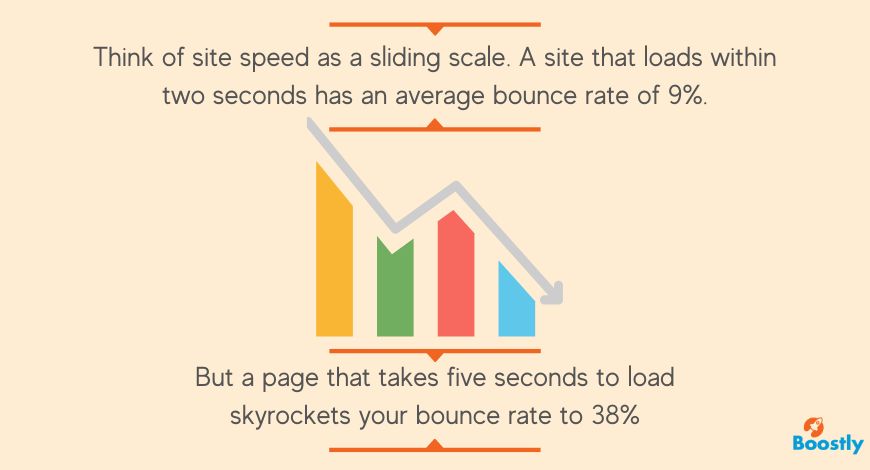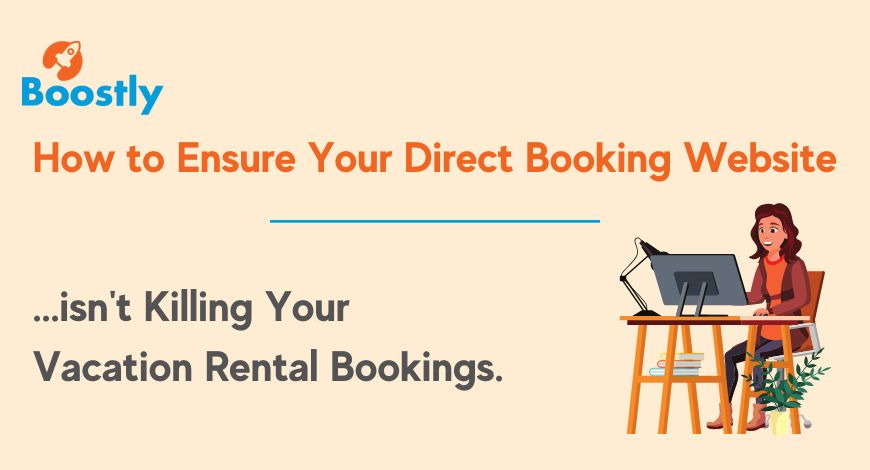It's no secret, people will almost always judge a book by its cover. And, in the online vacation rental and direct booking industry, your vacation rental website design is that cover. Want to know why your hospitality website could be harming your bookings? Read on to find out more.
In a recent interview with Duetto, TeHead Scriven, Head of Hospitality for Google, was asked a pertinent question that all hotel owners and managers have undoubtedly asked themselves.
What is the one thing that hotel websites' should be doing better?
In her response, Scriven elaborates on several factors that reflect the importance of content promotion for direct booking websites and boutique hotels.
On the move? Tune in for our take on improving site speed below.
Make the Most of Your Website Content
Scriven states that these days, “It’s very much about audience targeting and making sure that the hotels are making the most of the content on their website. That includes providing content on everything that’s around their hotels. It’s about offering niche keywords on what the hotel has to offer and highlighting unique things to do around the hotel.
Here's a quick list of things you should seek to achieve in your content marketing:
- Get to know and understand your target audience. Find out what they want.
- Write clear and precise headlines and subheadings that address user queries
- Use engaging and visually appealing images and videos.
- Make sure your vacation rental website design is easy to navigate and user-friendly.
- Use formatting to improve readability. Bullet points are great, and so are short paragraphs.
- Use keywords that make sense. Don't make life hard for the reader for the sake of SEO.
- Provide valuable and relevant information that addresses the stated needs of your target audience.
- Update your content regularly to keep it fresh and relevant.
- Encourage user engagement through comments, social media sharing, and calls to action.
- Use analytics to track user behavior and adjust your content strategy accordingly.
Improve Your Vacation Rental Site Speed
Other Google tools hotels should use will focus on the user experience, especially for mobile. We have a site that offers free UX and speed testing. Check it out using Google Page Speed Insights.
For example, three seconds is a typical good load time. Hotels average eleven seconds, while online travel agents average 2-3 seconds. How quick is yours?
We are encouraging more hotels to go down the AMP (Accelerated Mobile Pages) route. There are a lot of tricks that can be done on AMP that you can do to improve your mobile site, and it’s easy to do.”
So with that in mind, now we ask our readers,
How many of you regularly test how long it takes to load your website?
I'm guessing not that many. Now, don’t you want to know if your website speed is having a negative effect on your bookings?
The most common error that slows down sites is image size. You get new, fancy photos of your property and want to show them to the world. You upload them to your listing sites, social channels, and OTAs. But your website doesn’t compress your images to the optimal size. As a result, the new, high-quality photos will slow down your site's speed.
How to fix this:
I use a WordPress plugin called image optimiser. It automatically reduces the file size when I upload large pictures to my website. It’s a freemium service, so after a few images, it starts to charge. (The fee is minimal, though).
Other reasons your site speed is slow
This is where it gets technical, and if you’re not comfortable with technology, you will need the help of a website developer. We had this issue on my website in the past.

We signed up for a hosting website site (Fast Hosts) and purchased the blog standard package. This gave me a certain amount of data that we could add to my site. We then filled my allowance with fresh photos. Just like with anything else, when you fill up your allowance, your performance gets slower because it has more to load.
To fix this, you can either change your server or upgrade to allow more data on your website host allowance. Again, we did this, and it took muse days to figure it out. It would have taken less than an hour if we had gone to a site developer!
Check Your Bounce Rate
Pro Tip: Log into Google Analytics and check how many people are bouncing or leaving your website from the home page.
If that number is more than 33%, then you have a problem!
If your load speed is more than 3-4 seconds, you lose direct bookings and force your potential guests to go elsewhere.
It’s all about user experience. The more user-friendly your website, the lower your bounce rate. Here are three easy ways to improve your bounce rate that you can test right now.
1. Wall of Text
Arriving on a website or web page that’s content-heavy is intimidating. Separate content by adding “chunks” of digestible information, like bullets. Reducing the line width and increasing the line height can also help.
2. Engaging Images
Add imagery such as photography, illustrations, diagrams, and anything else relevant to your content to break up the text and engage the visitor so that they become intrigued. Read my blog on how to take picture-perfect photographs of your hotel.
3. Page Speed
Again, everyone hates slow-loading pages. The old marketing rule of thumb is that if your page does not load within 2 seconds, your audience will give up and try and find what they are looking for elsewhere.
In Google Analytics, go to the Behaviour section and take a look at the Site Speed tool to discover the load times of your most important pages.
The PageSpeed Insights tool is also useful for generating suggestions to speed up load times on a page-by-page basis. Don’t let page load affect visitors and prospective visitors in your hotel’s marketing.
Use these three key tips and watch your bounce rate improve! Get into the mind of the user when working on your website. The user experience should be your focus!
In the remainder of her interview, Terri goes on to talk about how Google is looking to help hotels with a “Book Direct” campaign. You can read the full interview here.
How quick is your website? Got questions? Contact us at Boostly, and let's see what we can do to set your site on rocket speed!


